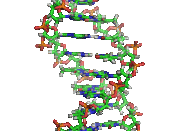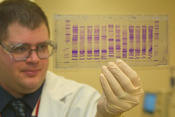We have all heard about the wonder technology of DNA fingerprinting. It sounds exactly what we need for our society; however, the reality of cause is somewhat less spectacular.
First of all, the DNA database is not faultless. It is subject to errors and contamination in each of its stages and requires extremely high lab standards to be successful - Just one slight error and the result could be completely different. One example of this happening was in Christchurch, New Zealand, where a man spent 4 months under police investigation for a double murder because of cross-contamination between 2 different DNA samples.
Heat, sunlight and bacteria can all corrupt any genetic data, as well as human error or fraud, that's why DNA profiles aren't always accurate. Even a complete DNA profile cannot determine the length of time a suspect was present at a crime scene or the date in question.
Also, scientists have warned that as the database grows, the chances of finding 2 full DNA profiles which appear the same but are not actually from the same person will increase. A spokesperson from the Forensic Science Service says that it is slim, but possible.
What's to stop a criminal from collecting samples of blood, hair or saliva from someone else and putting it at the scene of the crime. A criminal could break into a shop and smear someone else's blood on the broken window to deceive the police, and leave. An innocent person could be a suspect.
DNA evidence is far easier to plant than someone's fingerprint; therefore DNA testing should be no substitute for traditional detective work
But not only could there be deliberate contamination from the criminals, Police could be involved in deliberately "drylabbing" or faking DNA results. In 1995, an 18 month investigation was...



Interesting case
I personally think a DNA database would be useful, but I completely understand what this esay is trying to say. It is a good arguement for the negative team in this debate.
0 out of 0 people found this comment useful.